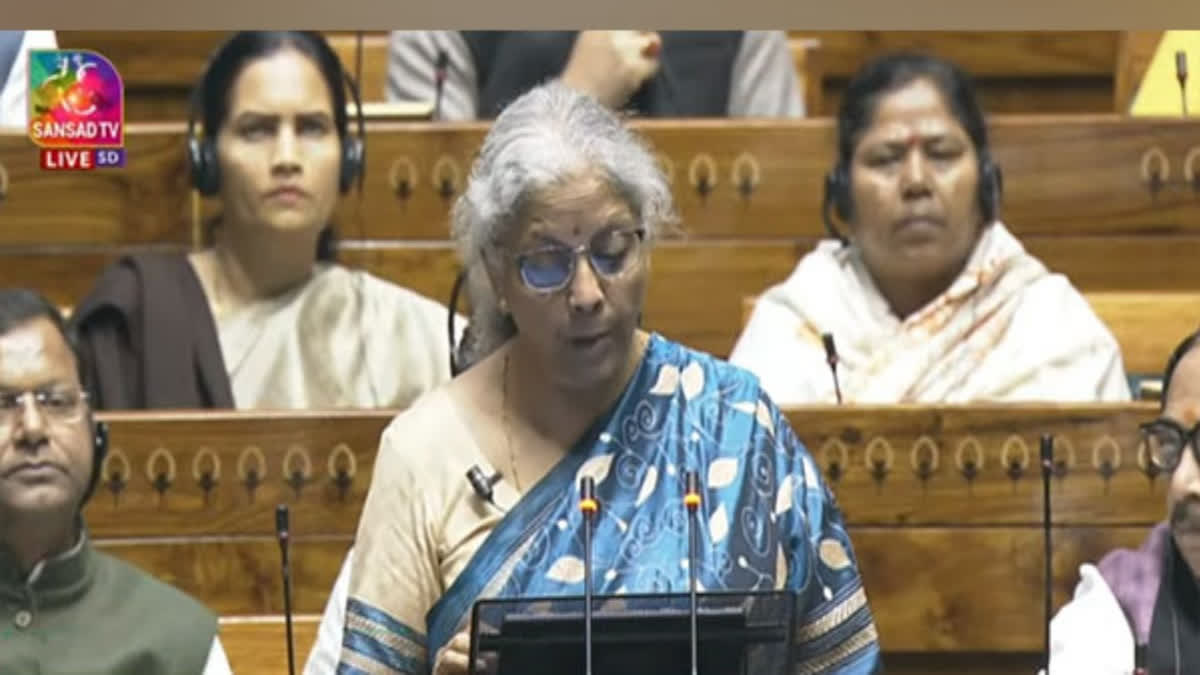New Delhi: The interim budget 2024-25, which was tabled on Thursday, has set the ball rolling for a cleaner and green India to meet the net zero target by 2070.
While presenting the budget, Union Finance Minister Nirmala Sitharaman announced a slew of measures for sustainable development of the country. This includes viability gap funding for wind energy, setting up of coal gasification and liquefaction capacity, and phased mandatory blending of CNG, PNG, and compressed biogas among others.
Viability gap funding aims at supporting infrastructure projects that are economically justified but fall marginally short of financial viability. Support under this scheme is available only for infrastructure projects where private sector sponsors are selected through a process of competitive bidding.
Ankit Kedia, Founder and Lead Investor of Capital A said, "The provision of viability gap funding for shore-wind energy is strategically poised to attract startups and investors to this sector."
Earlier, in the Union Budget 2023-24, the FM had identified Green Growth as part of the seven priorities - Saptarishi – for a healthier environment. In the interim budget, the FM has taken the initiative forward and has come up with schemes so that sustainability gathers momentum at a time when global warming and climate change are hurting the world economies.
Deepak Pahwa, chairman of Pahwa Group and Managing Director of Bry-Air, said the strategic focus on harnessing offshore wind energy reflects a drive towards renewable sources, easing the burden on depleting natural resources.
"As the nation progresses towards a sustainable future, the announcement on green energy is expected to accelerate the adoption of clean energies across sectors, making a substantial contribution to reducing the country's carbon footprint," he said.
The FM has also announced financial assistance for the procurement of biomass aggregation machinery. She added that under the rooftop solarization programme one crore households will be enabled to obtain up to 300 units of free electricity per month. The move will augment income by saving households an estimated Rs 15,000 – Rs 18,000 annually on electricity bills.
The government will expand and strengthen the electric vehicle (EV) ecosystem by supporting manufacturing and charging infrastructure, the Finance Minister said. Greater adoption of e-buses for public transport networks will be encouraged through payment security mechanisms, she added.
"In addressing the key barrier to EV and hybrid vehicle adoption - the shortage of public charging stations, evident from the 6,586 stations recorded by March 2023 – the government's 2024-25 Union Budget presents a forward-thinking strategy. It aims to incentivise and substantially expand the electric vehicle ecosystem, with a focused investment in boosting the number of charging stations. This initiative is a cornerstone in transforming India's EV landscape, overcoming range anxiety, and promoting electric vehicles as a viable, sustainable transport solution for the future," said Kartik Narayan, CEO of Staffing, TeamLease Services.
The government is devising a plan to replace 800,000 diesel buses, which make up around one-third of all buses on roads, with electric ones over the next seven years. The replacement strategy would involve deploying 200,000 electric buses for state transport undertakings (STUs), 550,000 for private operators, and 50,000 for schools and employee transportation by 2030.
Read More



